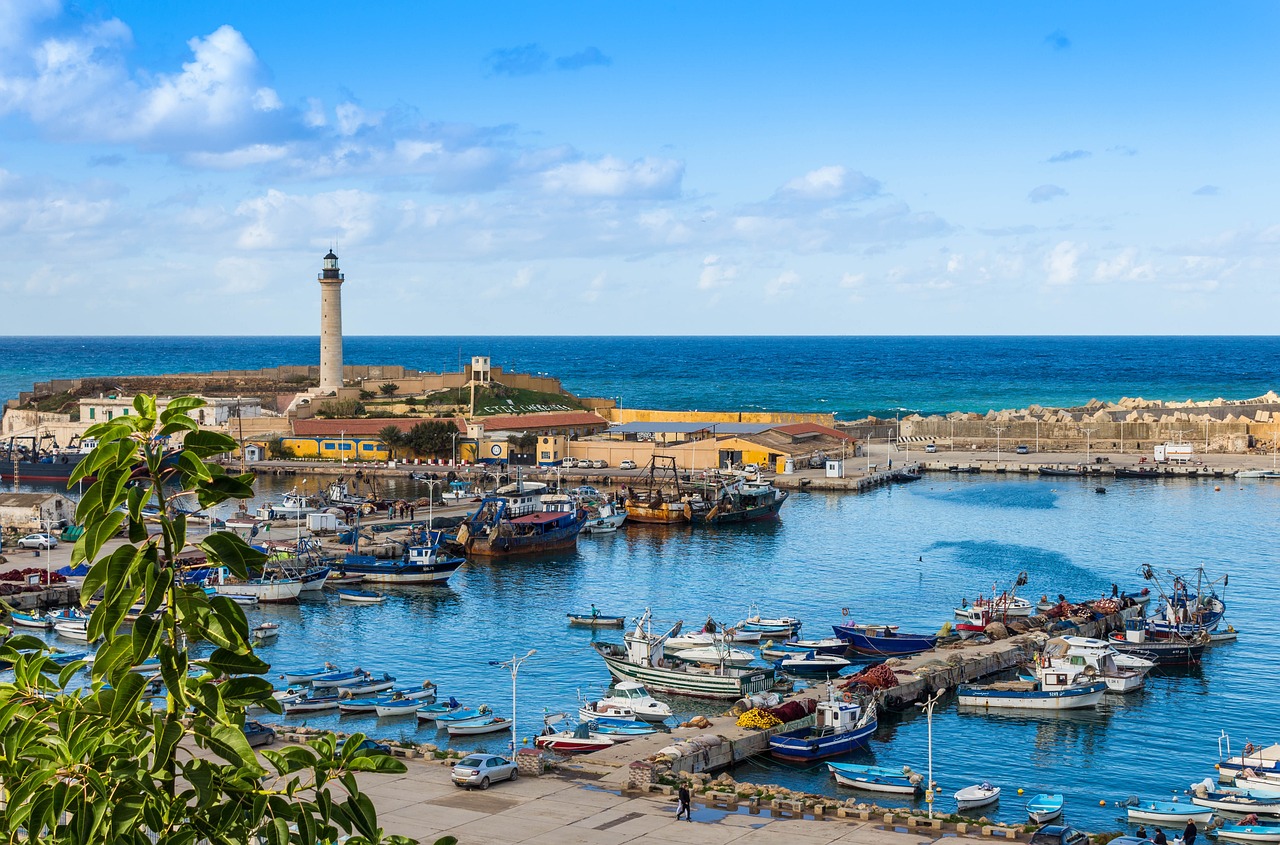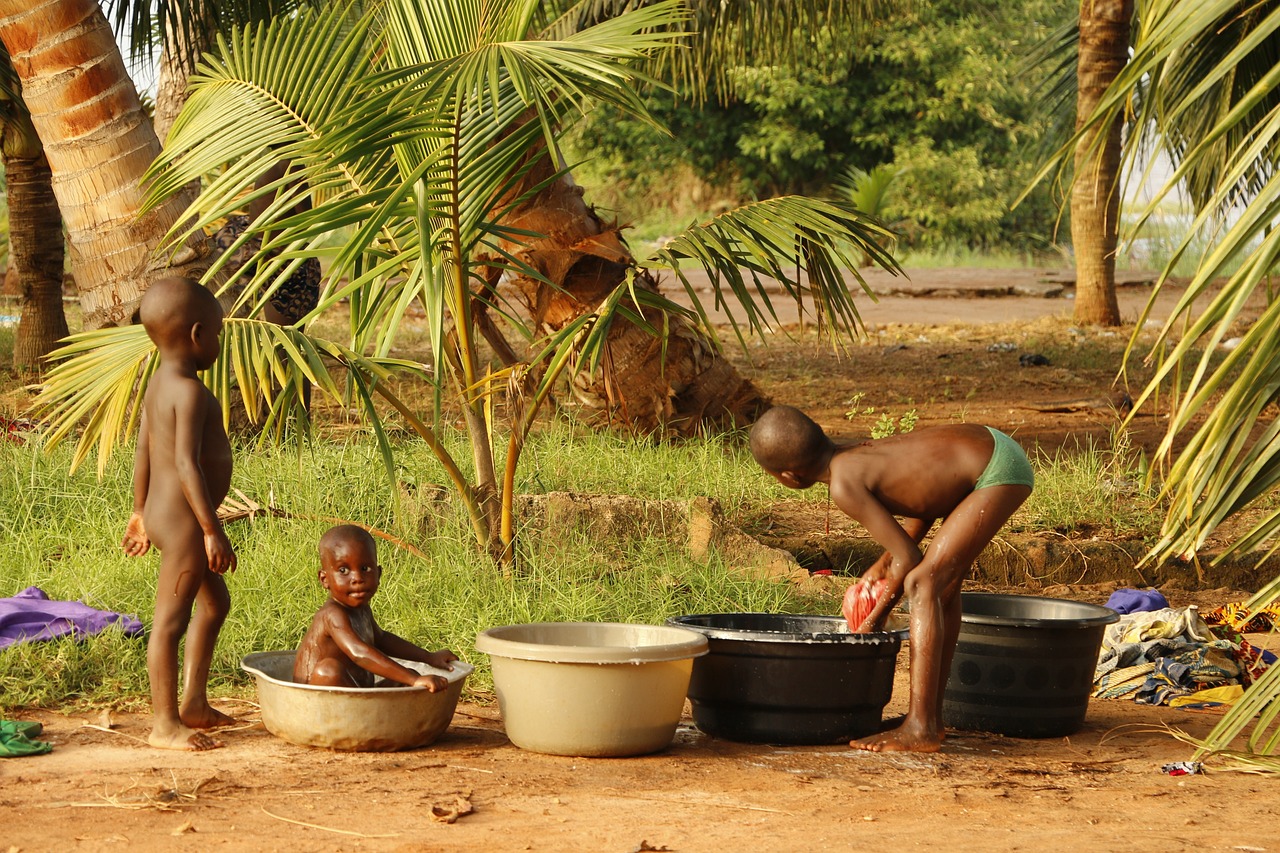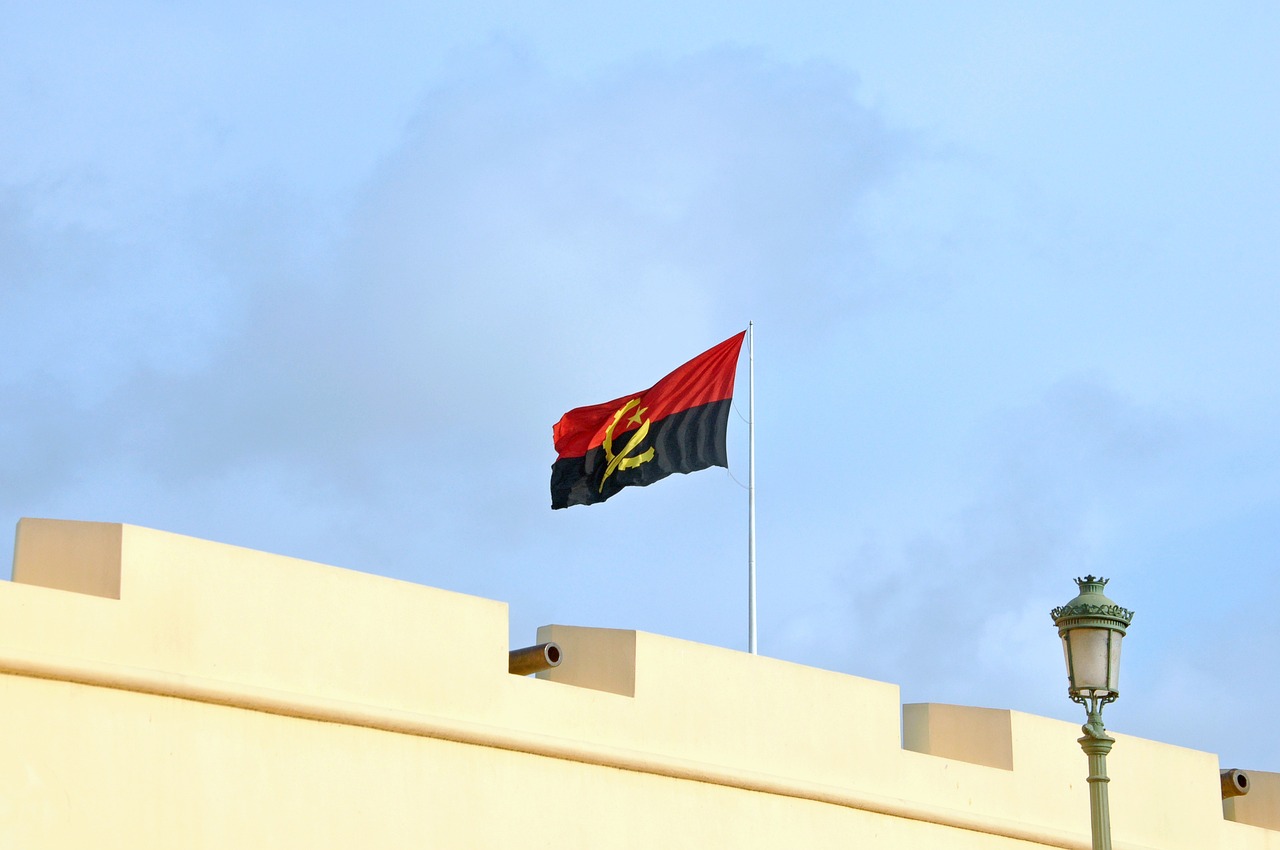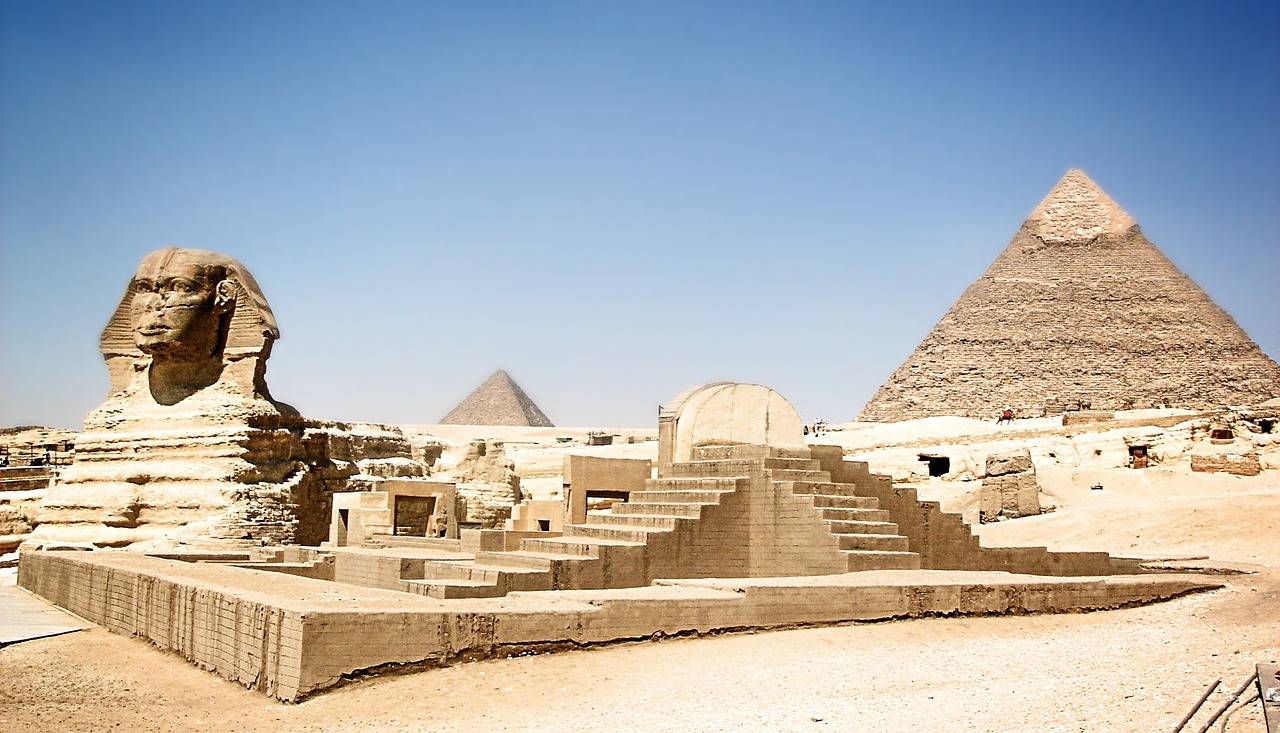Discovering Algeria: 30 Fascinating Facts About the North African Gem
Algeria, the largest country in Africa, is a captivating land of rich history, diverse landscapes, and vibrant culture. From the majestic Sahara Desert to the bustling cities and ancient ruins, Algeria offers a wealth of discoveries for those seeking adventure and exploration. In this article, we uncover 30 fascinating facts about this North African gem that will pique your curiosity and ignite your wanderlust.
1. Algeria is the 10th Largest Country in the World
With an area of approximately 2.38 million square kilometers (919,595 square miles), Algeria is the 10th largest country globally. Its vast territory stretches from the Mediterranean coastline in the north to the vast Sahara Desert in the south.
2. It is Home to the Tassili n’Ajjer National Park
Tassili n’Ajjer National Park, a UNESCO World Heritage Site, is renowned for its stunning rock formations, ancient rock art, and prehistoric archaeological sites. This expansive park showcases the unique beauty of Algeria’s Sahara region.
3. Algeria Boasts the Largest Desert in the World
The Sahara Desert, the largest desert on Earth, covers a significant portion of Algeria’s southern territory. Its vast sand dunes, mesmerizing landscapes, and nomadic traditions make it a must-visit destination for adventurers and nature enthusiasts.
4. The Country Has a Diverse Landscape
Algeria’s diverse landscape encompasses not only the Sahara Desert but also stunning coastal plains, fertile valleys, rugged mountain ranges, and even a Mediterranean coastline. This diversity offers visitors a wide range of natural wonders to explore.
5. Algeria is Home to Ancient Roman Ruins
Throughout Algeria, you can find remarkable remnants of the Roman Empire. The UNESCO-listed site of Djémila, the ancient city of Timgad, and the well-preserved ruins of Tipasa are just a few examples of Algeria’s rich Roman heritage.
6. The Capital City is Algiers
Algiers, located on the Mediterranean coast, serves as the capital and the largest city in Algeria. It is a vibrant metropolis with a mix of modern architecture, colonial influences, and a charming old town known as the Casbah.
7. Algerian Cuisine is Flavorful and Diverse
Algerian cuisine reflects a blend of Berber, Arab, and Mediterranean influences. Traditional dishes like couscous, tajine, and brik showcase the country’s flavorful spices, fresh ingredients, and culinary traditions.
8. It Has the Largest Mosque in Africa
The Great Mosque of Algiers, also known as the Djamaa el Djazaïr, is the largest mosque in Africa and the third largest in the world. This architectural marvel can accommodate up to 120,000 worshippers and features stunning Islamic design elements.
9. Algeria Has a Rich Cultural Heritage
Algeria boasts a vibrant cultural heritage shaped by its diverse ethnic groups, including the Berbers, Arabs, and Tuaregs. Traditional music, dance, literature, and handicrafts play a significant role in preserving and celebrating this cultural wealth.
10. The Country Celebrates Independence Day on July 5th
Independence Day, commemorating Algeria’s liberation from French colonial rule, is celebrated with great enthusiasm on July 5th each year. It is a day filled with patriotic pride, parades, fireworks, and cultural festivities.
11. The Amazigh Language is Widely Spoken
The Amazigh language, also known as Tamazight, is spoken by a significant portion of Algeria’s population. It is recognized as an official language alongside Arabic and plays an essential role in preserving the cultural heritage of the Berber communities.
12. Algeria Has Nine UNESCO World Heritage Sites
Algeria takes pride in its remarkable heritage, as evidenced by its nine UNESCO World Heritage Sites. These include the ancient Roman ruins of Timgad, the historic Casbah of Algiers, the prehistoric rock art of Tassili n’Ajjer, and the unique M’Zab Valley.
13. The Sahara Marathon is Held Annually
Every year, athletes and adventurers from around the world gather in Tindouf, Algeria, to participate in the Sahara Marathon. This challenging event allows participants to experience the vastness and beauty of the Sahara Desert while promoting solidarity with the Sahrawi people.
14. The Hoggar Mountains Showcase Breathtaking Scenery
The Hoggar Mountains, located in southern Algeria, offer awe-inspiring landscapes of towering peaks, deep canyons, and hidden oasis. It is a haven for trekkers and nature lovers seeking breathtaking vistas and a sense of tranquility.
15. Algerian Desert Nomads are Known as Tuaregs
The Tuareg people, often referred to as the “Blue Men of the Desert,” are nomadic pastoralists who have traversed the Sahara for centuries. Their distinctive indigo-colored robes and intricate silver jewelry are iconic symbols of their culture.
16. Algeria is a Leading Producer of Natural Gas
Algeria is among the world’s top producers and exporters of natural gas. Its abundant reserves and strategic location make it a key player in the global energy market.
17. The Casbah of Algiers is a UNESCO World Heritage Site
The Casbah of Algiers, a historic quarter within Algiers, is a UNESCO World Heritage Site. Its narrow streets, traditional houses, and ancient mosques provide a glimpse into the city’s fascinating past and architectural splendor.
18. The National Museum of Antiquities Showcases Archaeological Treasures
The National Museum of Antiquities in Algiers houses an extensive collection of archaeological artifacts, including ancient Roman mosaics, prehistoric tools, and historical manuscripts. It offers a captivating journey through Algeria’s rich historical legacy.
19. Algeria Has a Mediterranean Climate
Most of Algeria experiences a Mediterranean climate, characterized by hot, dry summers and mild, rainy winters. However, the climate becomes more arid and desert-like as you move southward into the Sahara region.
20. The Sahara Desert is a Haven for Astronomy Enthusiasts
The Sahara Desert’s clear skies and minimal light pollution make it an ideal destination for stargazing and astronomy. The uninterrupted expanse of the desert provides a stunning backdrop for observing celestial wonders.
21. Algerian Mint Tea is a Popular Beverage
Mint tea, known as “nana” in Algeria, is a beloved beverage that is deeply ingrained in the country’s culture and hospitality. It is a refreshing blend of green tea, fresh mint leaves, and sugar, often served in small decorative glasses.
22. The Algerian Flag Symbolizes Liberation
The Algerian flag, with its bold green and white colors and red star and crescent, represents the country’s struggle for independence and its commitment to Islam. The green symbolizes Islam, white represents purity, and the red star and crescent signify the bloodshed in the fight for liberation.
23. Algeria’s National Day is November 1st
Algeria’s National Day, observed on November 1st, commemorates the start of the Algerian War of Independence against French colonial rule. It is a day to honor the sacrifices made by those who fought for freedom.
24. The Algerian Sahara is Home to Unique Desert Wildlife
Despite its harsh conditions, the Algerian Sahara is home to a surprising variety of desert wildlife. From the fennec fox and Barbary macaque to desert hedgehogs and monitor lizards, the desert ecosystem supports a range of resilient species.
25. Algerian Handicrafts Showcase Traditional Artistry
Algeria is known for its intricate handicrafts, such as traditional carpets, pottery, leatherwork, and jewelry. These artisanal creations reflect the country’s rich cultural heritage and skilled craftsmanship.
26. Traditional Music and Dance are Integral to Algerian Culture
Algerian music and dance are vibrant expressions of the country’s diverse cultural tapestry. From the rhythmic beats of Rai music to the graceful movements of traditional folk dances like the Kabyle dance, these art forms showcase Algeria’s creative spirit.
27. The Ahaggar National Park is Home to Mount Tahat
The Ahaggar National Park, located in the heart of the Sahara Desert, is renowned for its rugged mountains and Mount Tahat, the highest peak in Algeria. This remote and captivating region offers unparalleled opportunities for adventure and exploration.
28. The Desert City of Timimoun is Known as the “City of Red”
Timimoun, a picturesque oasis town in the Algerian Sahara, is often referred to as the “City of Red” due to the distinctive red hues of its traditional mud-brick buildings. Its palm groves, ancient ksour (fortified villages), and vibrant markets attract visitors seeking an authentic desert experience.
29. Algerian Hospitality is Warm and Welcoming
Algerians are known for their warm hospitality and generosity. Visitors to Algeria can expect to be greeted with open arms, treated to delicious traditional meals, and immersed in the genuine warmth of the Algerian people.
30. Algeria’s Natural Beauty Inspires Exploration
From the captivating Sahara Desert to the rugged Atlas Mountains, Algeria’s natural beauty is a source of inspiration for adventurers and nature enthusiasts. Its diverse landscapes and rich biodiversity make it a hidden gem waiting to be explored.
Conclusion
Algeria, with its intriguing history, stunning landscapes, and vibrant culture, offers a wealth of experiences for intrepid travelers. Whether you’re fascinated by ancient civilizations, drawn to the allure of the desert, or captivated by the warmth of its people, Algeria promises an unforgettable journey of discovery.
Author Profile
- Welcome to my world facts blog! I'm Jay Steph, and I'm here to explore the captivating wonders of our planet. With a thirst for knowledge and a passion for exploration, I unravel fascinating insights about cultures and history. Join me on this awe-inspiring journey as we uncover hidden treasures together. Let's dive into the world of world facts and embark on an incredible adventure!
Latest entries
 AsiaJuly 31, 202330 Facts About Bangladesh
AsiaJuly 31, 202330 Facts About Bangladesh AfricaJuly 31, 202330 Facts About Burkina Faso
AfricaJuly 31, 202330 Facts About Burkina Faso AustraliaJuly 25, 202330 Facts about the Marshall Islands
AustraliaJuly 25, 202330 Facts about the Marshall Islands South AmericaJuly 25, 202330 Facts About Chile
South AmericaJuly 25, 202330 Facts About Chile



